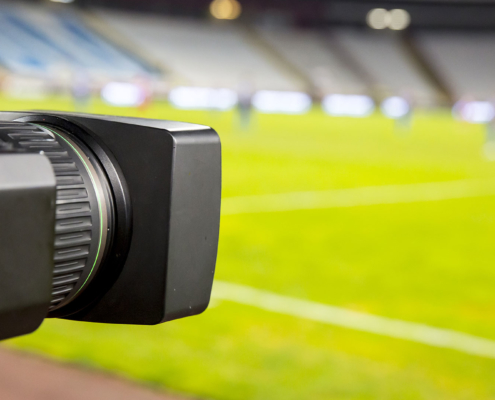I have read with interest various interpretations of how the Covid Pandemic will impact the sports industry. The general consensus is that it will accelerate the already rapid changes taking place as a result of consumption (how we follow, watch and attend sports events) driven by the smartphone and the rise of web 2.0 which will, in turn, accelerate the gaps between the richest and poorest sports federations, leagues and clubs, affirming a new world order.
There is no question that changes in consumption have been driving a greater gap between rich and poor in the last few years and this has shown in the numbers.
The biggest events increasingly command a greater share of fan attention, resulting in the bigger sports growing at the expense of smaller sports where audiences are falling.
There are lots of reasons for this including social followings increasing the importance of celebrity, meaning the biggest stars with the biggest followings drive interest in the team they play for and this drives the overall following and viewing of the league and sport overall. Witness the impact of Cristiano Ronaldo’s signing on the Juventus share price. However, whilst the Pandemic has certainly accelerated some consumer trends, I actually think that it will shake things up rather than simply follow the same path.
First of all bigger doesn’t necessarily mean less vulnerable. Larger event organisers, venues and clubs have larger balance sheets, but also far greater operational expenses which leave them exposed when there is no income coming in from live matches. It is well documented that Premier League clubs lose money when times are good. As a result of the Pandemic, the Premier League is having to offer rebates to its broadcast partners and 20% of the average club income is from matchday, which may not return for several months.
Secondly, bigger businesses are often less nimble or adaptable to change and this could be a problem. As McKinsey research shows, organisations with an agile operating model are far more likely to show improvements in both execution pace and productivity. The break in the sports calendar has offered them a chance to focus on adapting products and business models to the new norm and the price for not doing so may be very high.
Many sports in Europe are not centrally organised, which creates a fractured decision-making structure that can be an additional barrier to adapting to the current situation.
By contrast, smaller leagues and federations may be forced to work together to invest and adapt and this could be a big factor in growth, particularly in digital audiences and resulting revenue mixes. More McKinsey research shows that as much as five years of consumer and business digital adoption has happened in the last eight weeks.
However, this accelerated change does not necessarily mean that change has followed the same path that it would have without the Pandemic. Covid has changed the way we think about hygiene, the way we interact and the way we work and this will have a lasting impact.
The accepted norm in sport that the big will get bigger and the smaller will struggle to survive is hugely over-simplifying matters.
Many smaller sports have been dealing with the reality of not being one of the chosen ones scheduled on linear broadcasters for some time and have adapted their business models accordingly. The Americas Cup and the World Surf League have pioneered this approach over a number of years and it has actually led to more broadcast deals as a result of the success of its digital-first strategies, exponentially growing global audiences in the process.
We may well see a change in the world order as a result of the Pandemic but not necessarily as we might have expected. Strong leadership that is prepared to adopt change thinking combined with investment in the right areas will be the key differentiator, regardless of whether your organisation is large or small.





